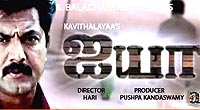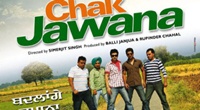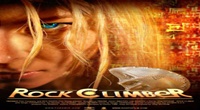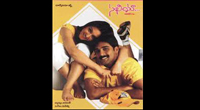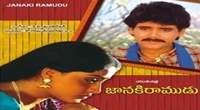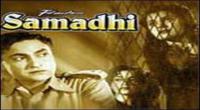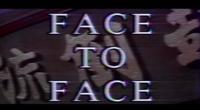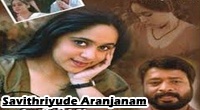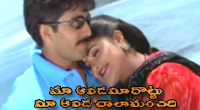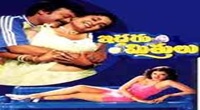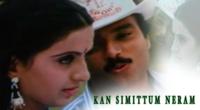This article has multiple issues. Please help improve it or discuss these issues on the talk page. (Learn how and when to remove these template messages)
(Learn how and when to remove this template message)
|
Breaker Morant is a 1980 Australian war drama film directed by Bruce Beresford, who also co-wrote the screenplay which was based on Kenneth G. Ross' 1978 play of the same name.
| Breaker Morant | |
|---|---|
Theatrical release poster | |
| Directed by | Bruce Beresford |
| Produced by | Matt Carroll |
| Screenplay by |
|
| Based on | Breaker Morant: A Play in Two Acts by Kenneth G. Ross |
| Starring |
|
| Cinematography | Donald McAlpine |
| Edited by | William M. Anderson |
Production company | South Australian Film Corporation |
| Distributed by | Roadshow Entertainment New World Pictures Umbrella Entertainment |
Release date |
|
Running time | 107 minutes |
| Country | Australia |
| Language | English |
| Budget | A$800,000 |
| Box office | $4.7 million (Australia) $3.5 million |
The film concerns the 1902 court martial of Lieutenants Harry Morant, Peter Handcock, and George Witton—one of the first war crime prosecutions in British military history. Australians serving in the British Army during the Second Anglo-Boer War, Lts. Morant, Handcock, and Witton stood accused of murdering captured enemy combatants and an unarmed civilian in the Northern Transvaal. The film is notable for its exploration of the Nuremberg Defense, the politics of the death penalty, and the human cost of total war. As the trial unfolds, the events in question are shown in flashbacks.
In 1980, the film won ten Australian Film Institute Awards including: Best Film, Best Direction, Leading Actor, Supporting Actor, Screenplay, Art Direction, Cinematography, and Editing. It was also nominated for the 1980 Academy Award for the Best Writing (Screenplay Based on Material from Another Medium).
Breaker Morant remains the movie with which Beresford is most identified and has "hoisted the images of the accused officers to the level of Australian icons and martyrs." In a 1999 interview, however, Beresford explained that Breaker Morant "never pretended for a moment" that the defendants were not guilty as charged. He had intended the film to explore how wartime atrocities can be "committed by people who appear to be quite normal." Beresford concluded that he was "amazed" that so many people see his film as being about "poor Australians who were framed by the Brits."
Screenplay
In Pretoria, South Africa, in 1902, Major Charles Bolton (Rod Mullinar) is summoned to a meeting with Lord Kitchener (Alan Cassell). He is told that three officers of the Bushveldt Carbineers—Lieutenants Harry Morant (Edward Woodward), Peter Handcock (Bryan Brown), and George Witton (Lewis Fitz-Gerald) -- have been arrested and charged with murdering captured Boers and a German missionary. Explaining ominously that the Kaiser has protested diplomatically about the latter killing, Kitchener asks Major Bolton to appear for the prosecution. To the Major's visible dismay, he is told that witnesses which would help the defence have been sent to India and that the defence counsel is expected to give him no trouble.
Meanwhile, the defense counsel, Major James Francis Thomas (Jack Thompson) meets Lieuts. Morant, Handcock, and Witton the day before he is to represent them in court. He tells them that he knows only the basic facts, which don't look good. A small town solicitor from New South Wales in civilian life, Major Thomas explains that he has never handled anything except legal documents like wills. Lieut. Handcock quips, "Might come in handy."
As court martial proceedings begin the following morning, Major Thomas argues, because his clients are Australians, that only the Australian Army can court martial them. Unmoved, the president of the court martial, Lt. Col. Denny, explains that the defendants may be tried for alleged crimes committed while serving under British command in the Bushveldt Carbineers. Without further ado, Denny reads the indictment. The three stand accused of the murder of a Boer prisoner named Visser and the subsequent shooting of six other captured Boers whose names are unknown. Furthermore, Lts. Morant and Handcock are also charged with the murder of the Reverend C.A.D. Heese.
Maj. Bolton begins by calling witnesses who describe a lack of discipline, drunkenness, widespread looting, and corruption among the Bushveldt Carbineers at Fort Edward. Maj. Thomas, however, manages to damage their credibility during cross examination. The testimony then turns to the shooting of Visser, which is shown in flashback.
On 5 April 1901, Lt. Morant's close friend, Captain Simon Hunt, had led a group of men to a farmhouse at Duiwelskloof intending to capture or kill Boer Commando Field Cornet Barend Viljoen. On arrival, the Carbineers found the farm swarming with far more armed men than expected. Captain Hunt was wounded, pinned down by enemy fire, and left behind when he ordered his men to retreat.
When the patrol returned to Fort Edward without Captain Hunt, Intelligence Corps Captain Alfred Taylor (John Waters) suggests Morant "avenge Captain Hunt". After returning to the farm and finding Captain Hunt's body mutilated with knives, Morant gave chase, ambushed Viljoen's men, and forced them to retreat with heavy losses. After capturing a Boer named Visser who was wearing Captain Hunt's jacket, an enraged Morant ordered his men to line up into a firing squad and shoot him. They obey his order.
Back in the courtroom, Maj. Thomas argues that standing orders existed to shoot "all Boers captured wearing khaki". To the shock of Maj. Thomas and his clients, Maj. Bolton explains that those orders only applied to Boers wearing British uniforms as a ruse of war. When Morant takes the witness stand and is grilled by Bolton, he defends the shooting of Visser by saying that he fought the Boers as they fought him. When asked which of the rules of engagement justifies shooting an unarmed prisoner, Morant shouts, in reference to the caliber of his rifle, "Rule 303." That night, Maj. Thomas angrily tells Morant that he was the best witness the prosecution has yet had. The following day, testimony turns to the shooting of the six Boers.
Captain Taylor testifies that, prior to his death, Captain Hunt had paid a visit to Kitchener's headquarters. Following Hunt's return to Fort Edward, Lt. Morant had brought in a group of Boers who had surrendered, only to be told by Captain Hunt that new orders from Kitchener, relayed through Col. Hubert Hamilton, decreed that no more prisoners were to be taken. Saying, "The gentlemen's war is over", Hunt had had the prisoners all shot while Morant watched. Captain Taylor testifies, however, that Morant had continued to bring prisoners in until after Captain Hunt had been killed. Afterwards, he always ordered his men to shoot them. On cross examination, Maj. Bolton damages Taylor by forcing him to admit that he is also awaiting court martial for shooting prisoners.
According to other witnesses, a group of six Boer guerrillas had approached Fort Edward after Captain Hunt's death, bearing white flags. Morant ordered them disarmed, lined them up, and had them shot. When one prisoner attacks Witton, he kills him.
In response, Maj. Thomas demands that Kitchener be summoned as a witness. He argues that, as his clients only followed orders, all charges must be dropped. Lt. Col. Denny recoils at the suggestion that Kitchener, a man revered throughout the British Empire, would be capable of giving such criminal orders. Equally contemptuous of the idea, Maj. Bolton privately tells Maj. Thomas that, if Kitchener testifies and denies giving the orders, the defendants' lives will be doomed. He vainly urges Maj. Thomas not to insist.
In a private conversation, Kitchener tells Col. Hamilton that, when he had issued orders to take no prisoners, he was trying to break the Boer guerrillas by waging total war. Now, however, he is trying to win the hearts and minds of the Afrikaner people and arrange a peace conference. To this end, a few soldiers "have to be sacrificed" for the misdeeds of the whole British Army. He orders Col. Hamilton to testify in his place and, when asked for what to say, Kitchener comments, "I think you know what to do."
The following day, Col. Hamilton takes the stand and denies ever having spoken to Captain Hunt. An outraged Morant stands up and screams that the Colonel is a liar. Lt. Col. Denny, however, comments that there will be no more talk of orders to shoot prisoners. Maj. Thomas, however, explains that Col. Hamilton's testimony is irrelevant. The fact is, his clients believed that such orders existed and thus cannot be held accountable for following them. The trial then turns to the murder of the Reverend Heese.
A Corporal Sharp testifies that, shortly before the massacre of the six Boers, Rev. Heese had passed through Fort Edward in a buggy. Shortly after his departure, Lt. Handcock had ridden up to Morant, spoken briefly to him, and then ridden off, looking "agitated", in the same direction as Rev. Heese, with a rifle. Maj. Thomas damages Sharp on cross examination by revealing his hatred of the defendants.
Upon taking the stand, Morant explains that Heese was under orders to never speak to prisoners while passing through Fort Edward and violated them. When Maj. Bolton asks why such orders existed, Morant explains, "It was for security reasons." When Morant had confronted the Reverend, he had been told that the prisoners had begged Heese to pray with them and that he could not refuse. Heese then left the Fort and was later found, shot to death, along the road. Bolton suggests that Heese was going to inform their commanding officer of Morant's plans to kill the prisoners and accuses Morant of ordering Handcock to silence him. Unmoved, Morant insists that his commanding officer already knew and suggests that he be recalled from India to testify. He smugly adds, "I don't mind waiting."
After Morant stands down, Maj. Thomas requests and is granted a brief recess to confer with Lt. Handcock before putting him on the stand. Late into the night, Maj. Thomas pleads with Handcock to tell him the truth, calling the Heese murder "the most serious charge." At last, Handcock opens up about his whereabouts.
The following morning, Handcock testifies that, when he left Fort Edward, he had travelled to the homes of two married Afrikaner women and slept with them. As Maj. Bolton eyes him, Maj. Thomas produces signed depositions from the women to confirm Handcock's story. The court and the prosecution accept the depositions without summoning the women to give evidence.
Later, in the prison courtyard, Lt. Witton wonders aloud about who really did kill Rev. Heese. Handcock smiles and says, "Me." To Witton's horror, Handcock explains that his visits to his "two lady friends" happened afterwards. When Witton asks whether Maj. Thomas knows, Morant explains that there is no reason for him to know. Morant explains that the Bushveldt Carbineers represent a new kind of warfare "for a new century". As the Boers do not wear uniforms, the enemy is everyone, including men, women, children, and even missionaries. That is why, after Rev. Heese had left the Fort, Morant had told Handcock that he believed that the Reverend was a Boer spy and had said that he was going towards Leydsdorp. A seething Handcock replied that anything could happen on the way there, had ridden after Heese, and shot him.
After a powerful summing up speech from Maj. Thomas, the defendants are found guilty of shooting the prisoners but acquitted of murdering Rev. Heese.
As they celebrate their probable evasion of the death penalty, Captain Taylor takes Morant aside and tells him that he and Handcock are almost certainly going to be shot. He offers to have a horse ready and says that many of the Highland Scots guards are sympathetic. He urges Morant to flee to Portuguese Mozambique, take ship from Lourenço Marques, and "see the world". Unmoved, Morant says, "I've seen it."
The next morning, all three defendants are sentenced to death, with Witton's commuted to "life in penal servitude". Desperate to save his clients, Maj. Thomas rushes to Kitchener's headquarters to demand a commutation. Upon arrival, he learns that Kitchener has already left. He is also told that both Whitehall and the Australian Government have expressed support for the verdict and sentences. Furthermore, there now will be a peace conference and every British and Commonwealth soldier will soon be going home.
The next morning, as Lt. Morant's poem Butchered to Make a Dutchmen's Holiday is recited in voiceover, both he and Lt. Handcock are led before a firing squad. Moments before being executed, Morant shouts, "Shoot straight, you bastards! Don't make a mess of it!" The final shot shows the bodies of both men being loaded into coffins.
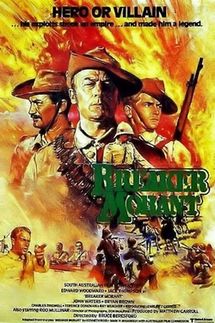 Story of movie Breaker Morant Film :
Story of movie Breaker Morant Film : 
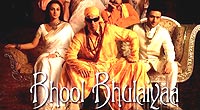
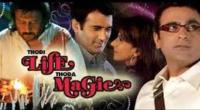
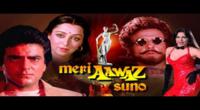
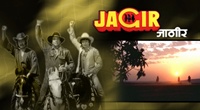
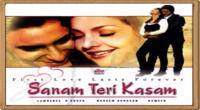
.jpg)
.jpg)
